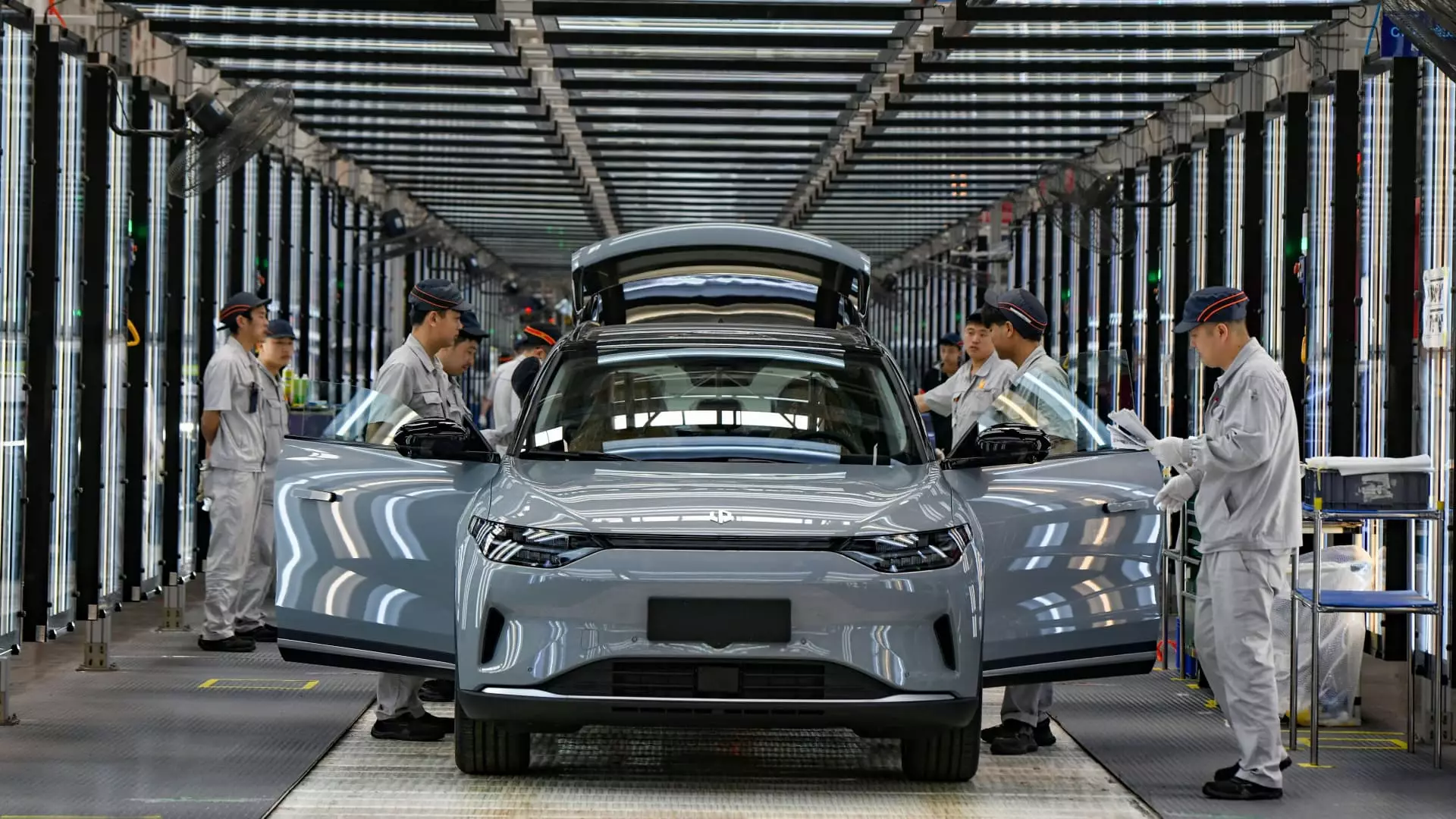In a move that has shocked investors and industry leaders alike, U.S. President Donald Trump’s recent imposition of tariffs on goods from key trading partners has raised alarms across the global automotive landscape. The tariffs, which notably include a hefty 25% on Mexican and most Canadian goods as well as a 10% duty on Canadian energy products and Chinese imports, were signed into effect on Saturday. The immediate economic ramifications were felt on Monday, when shares of major automotive companies tumbled sharply, signaling a brewing crisis within the sector. This article delves into the potential impacts of these tariffs and explores how they may shape the future of the automotive industry.
Upon the announcement of Trump’s tariffs, the reaction from financial markets was swift and severe. Automakers, already grappling with vulnerabilities stemming from international supply chains, witnessed significant drops in stock prices. Major players such as General Motors and Ford saw declines of 6.6% and over 4% respectively in pre-market trading. This trend extended to the European market with notable decreases in shares of companies like Valeo and Stellantis, which fell by 7.8% and 6%. Even powerhouse brands in Asia such as Toyota, Nissan, and Honda suffered losses exceeding 5%. Such widespread depreciation underscores investor anxiety about the possibility of an all-out trade war.
Trump justifies the implementation of these tariffs as a necessary measure largely framed around national security concerns, particularly relating to illegal immigration and drug trafficking, including the devastating opioid fentanyl crisis. While the administration garners support for prioritizing national security, experts caution that the economic consequences of the tariffs could lead to significant backlash. The automotive industry, intertwined with the economies of both Canada and Mexico, relies heavily on cross-border trade and manufacturing. Strained relations could disrupt well-established production lines and hurt job security across all three nations involved.
The prospect of retaliatory measures looms large as both Canada and Mexico have publicly stated their intent to respond in kind. These threats to impose their own tariffs could ignite a tit-for-tat escalation that would ultimately deepen the economic rifts. Analysts speculate that a complete breakdown in trade relations could lead to long-term damage for the automotive sector, making vehicles more expensive for consumers and shrinking market access for manufacturers. The potential for condemned products could result in inflation, further sinking consumer confidence.
Moreover, Trump’s tariffs may not be confined to North America. Warnings have emerged suggesting that the European Union could soon face comparable duties, severely impacting countries like Germany that are home to prominent car manufacturers such as Volkswagen, Mercedes-Benz, and BMW. A report from Oxford Economics indicates that tariffs on European automobiles could drastically inflate prices in the U.S., resulting in plummeting exports from Europe. As the E.U. prepares to respond proportionately, the once-smooth automotive trade could face significant turbulence, jeopardizing years of growth and partnership.
In light of the unpredictable landscape, major automotive manufacturers are calling for dialogue and cooperation. Volkswagen’s leadership has highlighted the essential role that open markets play in fostering innovation, growth, and economic stability. Similarly, BMW underscores the detrimental effects of tariffs, dubbing them as hindrances to progress. As the industry wrestles with these economic challenges, the urgent need for constructive negotiation is apparent.
As the implications of these tariffs unfold, the automotive industry stands at a crossroads between national security interests and economic realities. While the desire to protect U.S. interests is a valid concern, policymakers must recognize that the maintenance of robust and open trade relationships is equally crucial. The delicate balance between protecting American citizens and fostering a thriving economic environment will ultimately dictate the future trajectory of both the automotive industry and U.S. international relations. If trade wars escalate unchecked, the repercussions for both consumers and manufacturers may prove to be dire, transforming the automotive landscape in unpredictable ways.



Leave a Reply